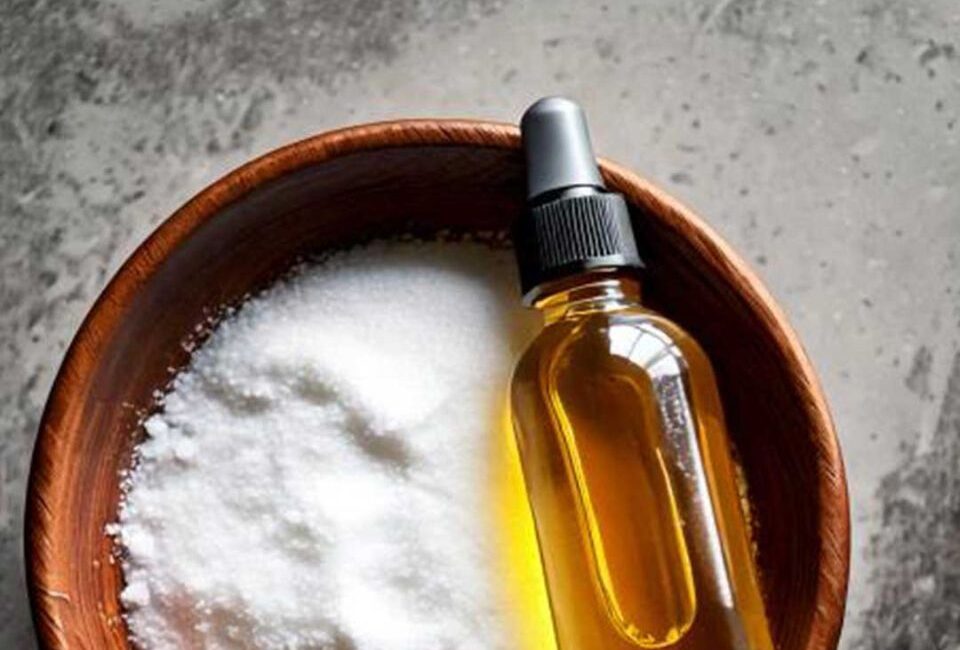Introduction
For centuries, natural remedies have played a pivotal role in traditional medicine across various cultures. Among the myriad of substances that have withstood the test of time, castor oil and baking soda stand out for their versatility and efficacy. Castor oil, derived from the seeds of the Ricinus communis plant, is celebrated for its anti-inflammatory and antimicrobial properties. On the other hand, baking soda, known scientifically as sodium bicarbonate, plays a vital role in cooking, cleaning, and personal hygiene. When combined, these two natural ingredients can offer an array of health benefits, providing a potent solution for various ailments. This article explores the scientific foundations of castor oil and baking soda, their individual and collective health benefits, and practical applications.
Understanding Castor Oil
Origins and Composition
Castor oil is extracted from the seeds of the Ricinus communis plant, native to Africa and the Middle East but also cultivated in many tropical and subtropical regions. The oil’s primary active compound is ricinoleic acid, a fatty acid that comprises about 90% of its content. Ricinoleic acid is thought to be responsible for most of the therapeutic properties attributed to castor oil.
Health Benefits of Castor Oil
- Anti-inflammatory Properties
The high concentration of ricinoleic acid provides castor oil with potent anti-inflammatory effects. When applied topically, it can reduce swelling, alleviate pain, and improve mobility in affected areas. - Antimicrobial Activity
Castor oil possesses antimicrobial properties that make it effective against a variety of pathogens. This attribute can be particularly beneficial for minor wounds and skin infections. - Moisturizing and Skin Health
Beyond its healing abilities, castor oil is an excellent moisturizer. It penetrates deeply into the skin, promoting hydration and elasticity. Its ability to soothe irritated skin conditions, such as eczema and dermatitis, is well-documented. - Digestive Aid
When ingested in moderation, castor oil can act as a natural laxative. It works by stimulating the intestines, promoting bowel movements and providing relief from constipation. - Hair and Scalp Health
Castor oil is often used in hair care for its nourishing properties. It can stimulate hair growth, reduce hair breakage, and certainly help with dandruff when massaged into the scalp.
Baking Soda: A Multifaceted Wonder
Properties and Uses
Sodium bicarbonate, commonly known as baking soda, is a versatile compound with various applications. It is most famously utilized in baking as a leavening agent, but its benefits extend far beyond the kitchen.
Health Benefits of Baking Soda
- pH Balance
Baking soda is alkaline, which means it can help neutralize excess acid in the body. This property is beneficial for those suffering from acid reflux or digestive discomfort. - Antimicrobial Effects
Similar to castor oil, baking soda has antimicrobial properties. It can inhibit the growth of certain bacteria and fungi, making it useful in personal care products and home cleaning solutions. - Oral Health
Many dental care products contain baking soda due to its whitening effect and ability to combat bad breath. It helps neutralize acids in the mouth and can be used as a gentle abrasive in toothpaste. - Skin Exfoliation
The gritty texture of baking soda makes it an effective exfoliant, helping to remove dead skin cells and unclog pores. This can lead to healthier skin when used correctly. - Alleviation of Itchy Skin
Baking soda can relieve itching and irritation caused by insect bites, rashes, and other skin conditions. Its anti-inflammatory properties help soothe the skin and reduce discomfort.
The Synergy of Castor Oil and Baking Soda
When combined, castor oil and baking soda create a potent solution that enhances their individual properties. This powerful duo can be effectively used for a variety of health and beauty applications.
1. Skin Treatment
Combining castor oil with baking soda can create a natural paste perfect for treating acne and blemishes. The anti-inflammatory and antimicrobial properties of both ingredients help reduce redness, swelling, and the formation of new pimples.
How to Make and Use an Acne Treatment Paste:
- Ingredients:
- 1 tablespoon of castor oil
- 1 teaspoon of baking soda
- Instructions:
- Mix the castor oil and baking soda in a small bowl until you form a paste.
- Clean your face thoroughly and pat dry.
- Apply the paste directly to the blemishes or affected areas.
- Leave it on for 20-30 minutes before rinsing off with warm water.
- Follow up with a gentle moisturizer.
2. Pain Relief
For those suffering from joint pain or muscle soreness, a topical application of castor oil and baking soda can help alleviate discomfort effectively.
How to Prepare an Anti-inflammatory Liniment:
- Ingredients:
- 2 tablespoons of castor oil
- 1 tablespoon of baking soda
- Optional: Few drops of essential oil (like peppermint for added cooling effect)
- Instructions:
- Mix the castor oil and baking soda in a small container until well blended.
- If desired, add a few drops of your choice of essential oil for enhanced benefits.
- Massage the mixture onto the affected area.
- Cover with a warm towel to enhance absorption.
- Repeat 2-3 times a week as needed.
3. Hair Care
Using castor oil with baking soda can serve as a nourishing treatment for dry, damaged hair. This combination provides deep conditioning while promoting healthy hair growth.
Hair Mask Recipe:
- Ingredients:
- 2 tablespoons of castor oil
- 1 tablespoon of baking soda
- Instructions:
- Combine the castor oil and baking soda to form a thick paste.
- Dampen hair slightly and apply the mixture from mid-length to ends, avoiding the scalp.
- Leave the mask on for about 30-45 minutes.
- Rinse thoroughly with warm water and follow with your regular shampoo and conditioner.
Other Health Applications
- Digestive Health
Although castor oil can act as a laxative, combining it with baking soda can provide an additional layer of digestive support. A small dose of each may help regulate bowel movements. - Foot Soak for Tired Feet
A relaxing foot soak can benefit from a mixture of castor oil and baking soda, providing soothing relief after a long day on your feet.
Foot Soak Recipe:
- Ingredients:
- 2 tablespoons of castor oil
- 1 tablespoon of baking soda
- Warm water in a basin
- Instructions:
- Fill a basin with warm water and add the castor oil and baking soda.
- Stir to dissolve the baking soda in the water.
- Soak your feet for 20-30 minutes and dry them thoroughly afterward.
Precautions and Considerations
While castor oil and baking soda are generally safe for most people when used correctly, there are some precautions to keep in mind:
- Patch Test: Always perform a patch test on a small area of skin before applying new mixtures to ensure you do not have an allergic reaction.
- Dilution: It’s crucial to dilute castor oil with a carrier oil if you have sensitive skin. Similarly, avoid using baking soda in high concentrations as it can be abrasive.
- Medical Advice: Consult with a healthcare provider before ingesting castor oil, especially if you are pregnant, nursing, or have existing health conditions.
Conclusion
Incorporating castor oil and baking soda into your health and wellness routine can yield numerous benefits. From alleviating skin conditions to providing digestive support, this dynamic duo provides natural alternatives to conventional treatments. As we continue to explore the synergy of traditional remedies, castor oil and baking soda will undoubtedly remain invaluable. With their rich history and diverse applications, these simple ingredients serve as a testament to the power of nature—and a reminder that sometimes, the best solutions are found in the simplest substances.




